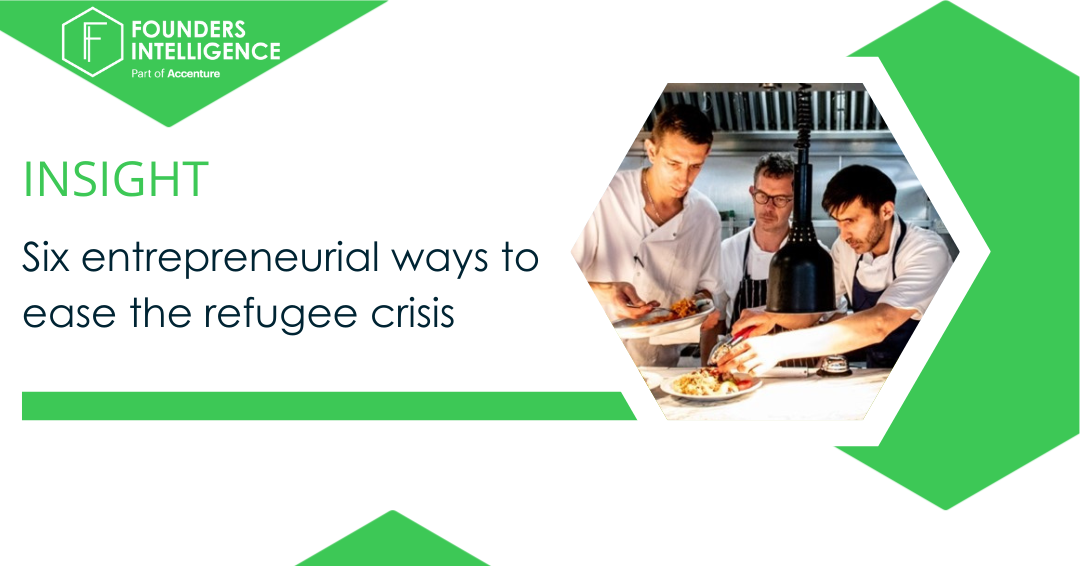myfirstminute in conversation with Tony Blair
Our partner firstminute capital has had a phenomenal line-up of interviews as part of the ‘myfirstminute’ series — but this one was particularly exciting: former Prime Minister (and technology enthusiast) Tony Blair gave us his views on the current situation and how technology will play a crucial role in going back to (a new) normal.
Since leaving office Tony Blair has spent most of his time working on three areas: supporting governments to deliver effectively for their people, working for peace in the Middle East, and countering extremism. He also established the Tony Blair Institute for Global Change to work on some of the most difficult challenges in the world today, believing that real leadership has never been more necessary or more difficult.
Since the COVID-19 outbreak, the Institute has shifted their attention to supporting governments to handle the crisis. The Institute is directly supporting global leaders in their fight against the pandemic, as well as delivering analysis and advice to help countries mitigate the economic impact, source equipment, harness the power of technology and position themselves for the rebuilding to come. For an example of their work, see this recently published piece by the Institute, ‘The Architecture of Containment’, here.
At Founders Intelligence, we help business leaders reinvent their industries by tapping into insights from the tech and venture world; below are our key take-aways from the conversation with Tony Blair:
The tech sector will not only help to fight the pandemic but will also play a crucial role in dealing with the knock-on effects and solve future challenges
- Easy-to-use testing at scale will ultimately help the UK to ease current restrictions and there have been great efforts and innovation in the last few weeks. Contact tracing technology is another obvious option if the alternatives are overwhelming the health care system or collapsing the economy.
- Tech will be crucial to deal with government debt resulting from the pandemic — delivering more efficient public services and making health care more preventive and effective will only be possible through delivering innovation.
- The acceleration of technology and science are crucial to answer the challenge of climate change. The tech revolution of the 21st century is the equivalent of the industrial revolution of the 19th century — and provides further exciting opportunities beyond the pandemic.
Government must support the tech sector but shouldn’t pick winners
- With the innovation economy under threat, governments are moving to support the tech sector. While this is important, the government shouldn’t try to pick technologies or entrepreneurs; rather it should look to support technology for social impact, building an ecosystem of support to develop new ideas.
- Governments should be supporting universities to provide an environment where students and academics can be turning ideas or new technologies into businesses.
Everyone, in every organisation, is going to start looking at how things are currently being done and how to improve them from first principles
- Governments in the Middle East will look into diversification in an accelerated way as they face a major change in the oil market at a much faster pace than anticipated, and will look extensively at how they can develop their own technology sectors.
- Many businesses in heavily-hit industries like hospitality and travel may not be viable for the foreseeable future once government support ends. For them to survive, technology will play a crucial role in helping to drive new revenues and reduce costs.
- Mr. Blair believes we haven’t yet reached an inflection point where our collective anxiety about the virus is replaced by anxiety about our economic future — this will happen once people re-emerge out of the lockdown. When that moment comes, the entrepreneurial community will play a key part in creating growth and providing answers to how the new normal will look.
British Airways CEO Álex Cruz asked Mr. Blair whether he missed flying. Consistent with other frequent travellers we’re hearing from, Mr. Blair doesn’t miss travelling per se but, like all of us, would quite like to go somewhere.
We are looking forward to more stimulating ‘myfirstminute’ conversations while stuck at home.


